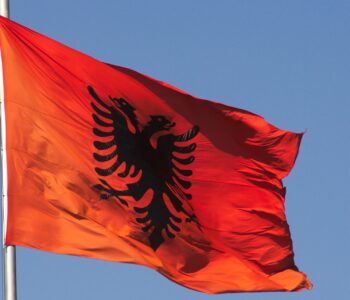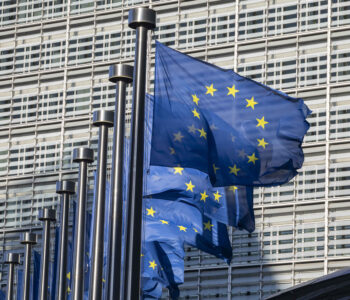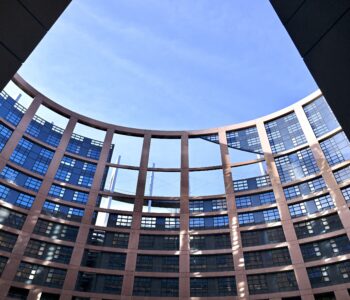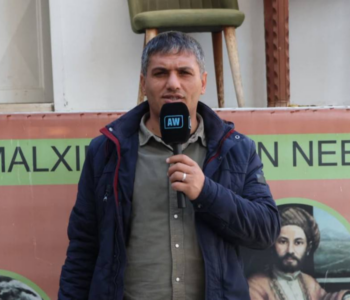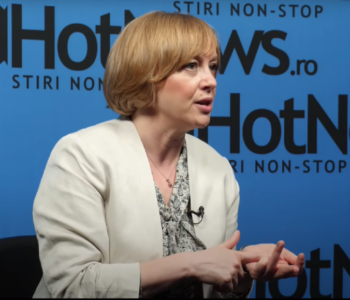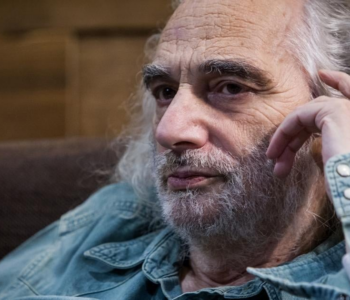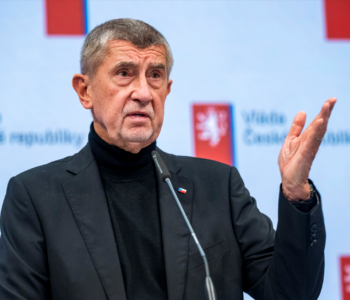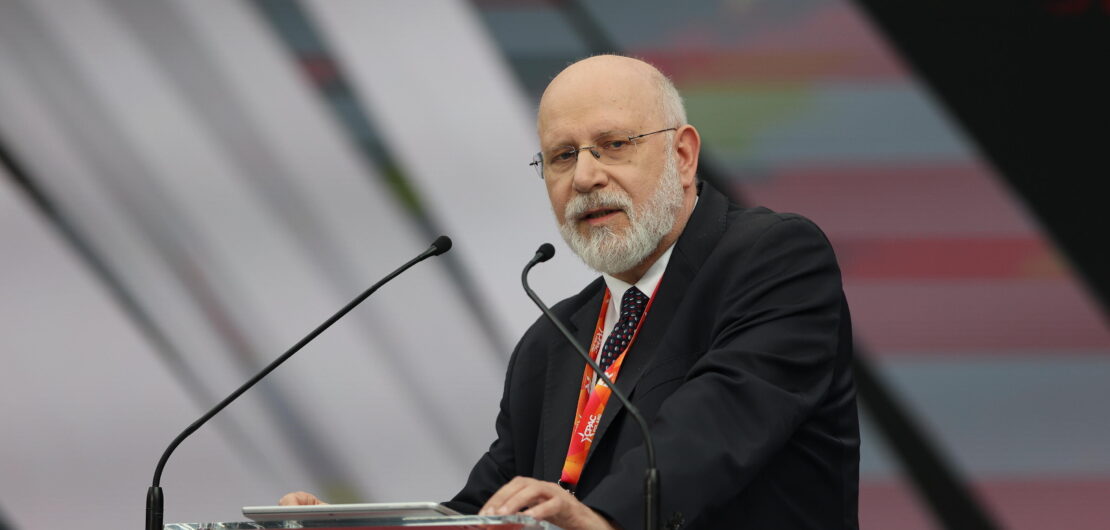
Poland: Opinion on EMFA reform of Broadcasting Law
Poland: Opinion on EMFA reform of Broadcasting Law
The International Press Institute (IPI), the European Centre for Press and Media Freedom (ECPMF), the European Federation of Journalists (EFJ) and Free Press Unlimited (FPU) provide the following contribution to the public consultation into the draft act to amend the Polish Broadcasting and Television Act. The draft Act published by the Ministry of Culture and National Heritage represents a core element of the implementation of the European Media Freedom Act (EMFA).
28.01.2026
The International Press Institute (IPI), the European Centre for Press and Media Freedom (ECPMF), the European Federation of Journalists (EFJ) and Free Press Unlimited (FPU) provide the following contribution to the public consultation into the draft act to amend the Polish Broadcasting and Television Act. The draft Act published by the Ministry of Culture and National Heritage represents a core element of the implementation of the European Media Freedom Act (EMFA).
The submission is made as part of our four organisations work in the Media Freedom Rapid Response (MFRR), a Europe-wide consortium that monitors threats against media freedom and advocates for measures to improve the freedom of the press in European Member States and Candidate Countries. This opinion submission was led by IPI and supported by ECPMF, EFJ and FPU.
MFRR partners held an international press freedom mission to Warsaw in 2024 to meet with the new government and call for democratic reform. The recommendations from that mission were published in the following report. This submission follows the engagement of the MFRR with Polish authorities during the visit, builds on individual reports of partner organisations and MFRR monitoring in 2025.
MFRR partners have been among the key international media freedom bodies advocating strongly for the European Media Freedom Act (EU Regulation 2024/1083) and our organisations have engaged with the European Commission in all stages of its design, creation and implementation. In line with this commitment, our organisations provide the following opinion on the draft amendment of the Broadcasting Act, which we hope will have a positive effect on creating additional safeguards for the protection of free and independent journalism in Poland.
Introduction
The draft act to amend the Broadcasting and Television Act overall represents a positive but incomplete initiative to reform Polish media legislation and create additional safeguards to protect free and independent media in Poland. In its current form it represents a rule of law-oriented effort to implement elements of the European Media Freedom Act (EMFA), which entered into full force in August 2025. Our organisations commend the public consultation and the invitation to civil society and media organisations to participate. After this analysis, recommendations for changes to the draft amendment are outlined at the end of this submission.
Strengthening independence and the role of the National Broadcasting Council
A central pillar of the draft amendment involves the reformulation of the National Broadcasting Council (KRRiT) and measures to strengthen its independence. In a major change, the number of members on the KRRiT would be increased from five to nine, with four appointed by Sejm, two by the Senate and three by the President. One-third of the members will be replaced every two years.
KRRiT’s mandate would be expanded. Functions would include supporting self‑regulation in audience measurement and supporting the Media Ethics Council. It would also oversee and maintain a new database on media ownership and flows of state advertising to media. Under new EMFA rules, it would also be tasked with assessing media mergers and acquisitions through the lens of media pluralism and editorial independence (see below).
Under the draft legislation, the system for appointments to the expanded KRRiT would also be updated to strengthen selection criteria. Applicants would not be able to have been members of a political party in the past five years and must not have held party functions or have run on party lists in the last decade. Candidates would also require the written support of media or cultural NGOs. All appointment decisions must be preceded by public hearings with civil‑society participation. Decisions made by KRRiT’s chair would now need prior consent by the council.
Our organisations welcome the proposed reforms to KRRiT, which aligns with Article 7 of EMFA regarding the independence of national regulatory authorities. Under previous governments, KRRiT has undergone repeated cycles of politicisation, eroding its independence. The organisations notes the highly problematic actions of its former chair, who took disproportionate and unilateral actions against media reporting critical of the government. The requirement for decisions made by KRRiT’s chair to require consent from the council would strengthen democratic decision-making and are therefore particularly welcome.
We also welcome changes to criteria and civil society support for appointments, which would help improve the professionalism and independence of future candidates. An increased number of councillors on the KRRiT would also make any future political capture of the regulator more challenging, though not impossible. Overall, these changes would add safeguards but not firewalls, and the KRRiT should be closely monitored by civil society bodies.
Our organisations underscore that the independent functioning of KRRiT would be crucial to the success of the proposed reforms, including the strengthening of the independence of Poland’s public media. Considering the KRRiT’s members would be chosen by the Sejm, Senate and President, some level of political influence would remain. Some of the current KRRiT members exemplify these challenges.
The expansion of its mandate and centralisation of powers – spanning PSM performance and involvement of appointments, funding allocation, licensing regulation, and pluralism opinion – poses structural risks. Our organisations therefore urges a phased process of implementation to ensure KRRiT is reformed before its mandate is expanded. Options should be explored for a staggered implementation of the law to guarantee this.
Given the extension of the mandate of the KRRiT and the concentration of powers, we also urge the Ministry to assess whether the budget of the regulatory body is sufficient to adequately carry out its foreseen roles and responsibilities. However, additional funding, if required, should also be tied to reforms of KRRiT which increase its independence.
Regarding the proposed role of KRRiT in supporting the implementation of journalistic codes of ethics, our organisations stress that any increased involvement in ethics development by KRRiT should be either limited or scrapped. Media ethics should be the sole self-regulatory responsibility of media and journalists, not a politically-appointed regulator.
Dissolution of National Media Council
Under the draft amendment, the National Media Council (NMC) would be abolished. Article 1(18) of the draft bill repeals Articles 27–28a of the Broadcasting Act, which govern the NMC’s establishment, composition and powers. This would render the 2016 law establishing NMC obsolete. Upon dissolution, the NMC’s authority to appoint supervisory boards and management for public media (TVP, Polish Radio, PAP) would revert to the National Broadcasting Council (KRRiT). The NMC was established in 2016 by the Law and Justice (PiS) party to oversee public media, with powers to appoint and dismiss their boards and supervisory boards, approve programme councils and ensure alignment with the “national interest” in public broadcasting.
Partner organisations of the MFRR have strongly criticised the function and independence of the National Media Council. Its establishment in 2016 bypassed the existing constitutional body, KRRiT, to establish a separate public media regulator dominated, by design, by political allies and MPs. Through the NMC, PiS wielded significant power in deciding the composition of the country’s public media, handing the party considerable influence over shaping programming and editorial policy. Although the Polish Constitutional Tribunal ruled in December 2016 that the circumvention of the KRRiT’s mandate was unconstitutional, the government used a legal ambiguity to block any reform.
Our organisations therefore support the abolition of the National Media Council, which represents a core element in the previous government’s system of capture of the country’s public media. The dismantling of the NMC will return Poland’s media regulatory landscape to constitutional order and eliminate a key lever of government interference over public media, now and in the future. If implemented, the transfer of its powers back to a reformed KRRiT could support the depoliticisation of TVP and would hopefully speed up the end of the current state of liquidation.
It should again be stressed that reform of KRRiT to increase its independence and professionalism is vital to securing overall improvement to media regulation. The transfer of the NMC’s regulatory powers to the KRRiT must be preceded by the strengthening of the regulator’s functional independence. Centralising such regulatory powers in the KRRiT without first guaranteeing its independence poses serious risks. Our organisations again stresses the need for a phased process of implementation to ensure KRRiT is reformed before its mandate is expanded. Options should be explored for a staggered implementation to guarantee this.
Public media – funding cuts and transfer to tax‑based model
Under the draft amendment, the funding model for public media in Poland would shift from a primarily licence-fee subscription model to an integrated tax‑based model. The current subscription fee would be replaced in 2027 with an audiovisual payment embedded into annual personal income tax declarations. These changes would guarantee at least 2.5 billion PLN (€590 million) per year for 2027–2036. The annual budget would be set by the Finance Minister, allowing significant discretionary power, but would be approved by parliament.
Our organisations recognise the ineffectiveness of the current licence fee system. However, our organisations note with concern that, according to estimates, this proposed annual budget would be more than 30% lower than 2024 projections and represents only 0.06% of GDP. According to the European Broadcasting Union, this would rank Poland 26 out of 27 EU countries for public media funding, well below the EU average of 0.12% of GDP.
Article 5 of EMFA requires Poland to ensure public service media have editorial independence, transparent governance and stable and adequate funding. While the proposed reform would foresee ‘stable’ funding until 2036 on paper, the cut of 30% undermines alignment with EMFA rules on ‘adequate’ PSM funding. The foreseen cut would add financial strain to an already lost list of challenges facing the broadcasters, which remain under liquidation.
We therefore urge the government to rethink the proposed tax‑based model to ensure changes from 2027 would not result in significant budget cuts. We urge the Ministry of Culture and National heritage to guarantee funding of at least 0.12% of GDP, ensuring Poland remains within the EU average. A failure of the government to provide adequate and sustainable funding would undermine the ability of Poland’s public media to continue their process of reform.
The MFRR partners also warn that replacing the licence fee with budgetary subsidies, set by the Finance Minister, would make public media vulnerable to government decisions. Even if the funding requires parliamentary approval, this could potentially contradict EMFA Article 5 on independence. Annual budget cycles, while legally guaranteeing a minimum budget, could leave funding vulnerable to destabilising annual fluctuations. Additional safeguards should be implemented to ensure the annual allocation by the Minister is handled in a transparent, proportionate, non-discriminatory and merit-based manner, with strong parliamentary oversight. Ultimately, the abolition of the subscription fee should only be undertaken if funding is guaranteed in a model which is truly stable, without major cuts, and independent of government.
Public service media – appointments and governing procedures
Public service media governance would also be redesigned. Telewizja Polska, Polish Radio, and the 17 regional broadcasters, would be brought together under a unified governance model. As outlined above, the National Media Council would be eliminated and its powers would return to the KRRiT. Supervisory boards and programme councils would be reduced to nine members and partly filled through competitions organised by KRRiT, based on civil society and staff nominations, with published rankings and reasoning for transparent choices made. Editors‑in‑chief would be appointed from shortlists prepared by the TVP and PR programme councils, following consultations with editorial teams and trade unions. The overall position of manager of the PSM would be held in a single role.
Our organisations is broadly in favour of the new system for management appointments, which represents a significant improvement on the current system. The proposed changes would increase transparency in the appointment procedure and increase democratic decision-making. We particularly welcome the switch to the appointment of the editor-in-chiefs by the programme council, instead of the NMC, or KRRiT, and new rules to ensure that appointees to these management positions do have demonstrable political connections. If properly implemented and overseen by an independent KRRiT, the proposed changes should help depoliticise the broadcasters and considerably limit the political influence over both future programming and editorial decision-making. Moving forward, we urge the current unstable state of liquidation at public media to be ended in the soonest possible timeframe.
While successive governments in Poland failed to create conditions for independent public media, the politicisation of TVP under the previous government caused significant harm. Considerable work remains to be done to limit political influence, professionalise and modernise the broadcasters for the digital age, and rebuild badly damaged public trust. The change in management appointment system will not be enough on its own to undo this damage and will take commitment and time. We again stress that the success of the reform of the public media will be closely tied to the reform of KRRiT. The concentration of appointment procedures for public media in the hands of a single regulatory body poses risks if the independence of the KRRiT is not first guaranteed.
Media ownership transparency and state advertising transparency
The draft amendment foresees the establishment of a new system for tracking transparency of media ownership structures and state advertising in media. This database would be overseen by KRRiT. Regarding advertising transparency, it would ensure all allocation of public money to media in the form of state advertising is conducted in a transparent, impartial, inclusive and proportionate and non-discriminatory manner, backed by audits and sanctions. All public entities would be obliged to supply information to KRRiT on their criteria for advertising. In addition, the KRRIT would also maintain an up-to-date database on ownership structures of media entities. The regulator would also be obliged to issue advisory opinions in media‑merger cases and to monitor the market for pluralism and editorial independence.
Our organisations support the proposed reforms, which would implement Article 25 of EMFA. As our organisations have identified, under the previous PiS-led government state advertising by public bodies was distorted into a form of reward system for positive coverage, with independent media critical of the government deliberately cut off from these funds. This weaponisation of state advertising to punish watchdog journalism is a central element of media capture. Proposed measures to increase transparency over these financial flows should assist in creating much needed accountability and equity. Future attempts by administrations or regional or local governments to politicise the funding would be visible and far easier to identify and rectify. However, the success of the system in practice would require monitoring to assess the impact of its implementation.
To ensure strong oversight of transparent media ownership, the draft amendment should be strengthened to oblige KRRiT to examine all forms of beneficial and indirect ownership structures, with powers to investigate and request information on all non-transparent ownership. Tied to this, further assessment should examine whether the KRRiT has sufficient powers to sanction media outlets for clear breaches of transparency rules or for failing to provide information on ownership structures, while ensuring that any such powers are open to judicial review.
Our organisations welcomes the proposed introduction of new obligations for the assessment of media mergers, alongside UOKiK, Poland’s anti-monopoly and consumer rights watchdog. This aligns with Article 22 of the EMFA, which obliges all Member States to provide an assessment of the impact of key media market concentrations on media pluralism and editorial independence. Under the previous government, in 2020 the regional media network Polska Press was controversially acquired by the state-controlled oil company PKN Orlen, despite major concern over the shift in editorial policy to one more favourable to the government. In a legal challenge by the Ombudsman backed by the MFRR, the court rejected the obligation to consider the impact of media pluralism in the local media market when assessing the acquisition. As a result, the merger was approved and the takeover was completed. In the following months, MFRR organisations documented the editorial purge by the newly appointed management in the vast majority of media outlets acquired by Orlen. Had there been clear obligations for an impact assessment at the time, the takeover of Polska Press could have potentially been avoided. We hope that if implemented, the media pluralism test could avoid a repeat of this situation.
Our organisations would expect the reformed KRRiT to work with the European Board for Media Services, a new EU body comprising representatives from national media regulators, to carefully assess the impact of any future media mergers of acquisitions at either local and national level on media pluralism and editorial independence and refrain from approving deals if serious concerns emerge. An obligation should be added to require that KRRiT must automatically request an expert opinion from the European Board in all cases flagged by the Polish Ombudsman (Commissioner for Human Rights).
Ban on media publications by local public authorities
An earlier version of the draft amendment included plans for new rules to limit local governments’ ability to publish their own press titles. This provision would have helped limit the ability of local governments to sponsor press titles which promote the local authorities in question, especially ahead of elections. We note that the current draft amendment shared for public consultation has removed these rules. We further note the critical response to this change by the Chamber of Press Publishers, the Association of Local Newspapers and the Association of Local Media, which rightly argue that legislation is needed to strengthen local journalism in Poland.
The MFRR partners recognise the detrimental impact that the unfair use of state funds by local governments to publish political content has had on local media and the local advertising market. We stress that while this proposed reform is not foreseen within the scope of the EMFA, the reform of the Broadcasting Act can and should go beyond EMFA. As such, our organisations call for the reinstatement of the proposed rules on local government media publication, as initially outlined, while ensuring local authorities can continue to publish crucial information bulletins for citizens. We further stress the need for an additional government package of financial support for local media.
Conclusion
As outlined, the draft act to amend the Broadcasting and Television Act overall represents a welcome initiative to reform Polish media legislation, implement key elements of EMFA, and create additional safeguards to protect free and independent media in Poland. It would enhance transparency, good governance and pluralism safeguards. However, there remains space for improvement to create safer guardrails for the independence of the regulatory body KRRiT and help support the sustained reform and depoliticisation of public media.
The draft law is undermined by the proposed changes to the system of funding for the public media, which would result in a substantial loss of revenue and could result in unstable annual fluctuations in budgeting. Drastic cuts to the funding for public media must be addressed and additional safeguards must be implemented to ensure the independence of the reformed KRRiT is undertaken before its mandate is significantly extended.
If ultimately implemented, and improved with the following recommendations, we believe these reforms would partially undo damage done to Poland’s landscape for media freedom under previous governments, especially that led by PiS, and construct much needed defences against future capture of the media ecosystem.
The bill therefore represents a measured and democratic attempt to depoliticise the public broadcasting and media freedom landscape in a proportionate and non-discriminatory manner. Our organisations also assessed that the draft amendment does not include significant additions beyond the scope of the European Media Freedom Act.
Until these reforms are fulfilled, Poland will remain frozen in a state of media freedom limbo: trapped with many of the previous damaging changes but unable to reverse them or safeguard against future threats.
While other EU countries have already implemented the European Media Freedom Act, Poland lags behind. Our organisations are aware that ultimately the passing of the draft bill into law will depend on its approval by President Nawrocki and are committed to advocating for the passing of the legislative reform despite these limitations.
To further improve the quality of the draft amendment, the undersigned partner organisations of the Media Freedom Rapid Response (MFRR) outline the following recommendations.
Recommendations:
– Implement a phased implementation approach to ensure that reform of KRRiT is completed or significantly advanced before its mandate is expanded, to ensure independent media regulation
– To add additional safeguards, detach KRRiT’s assessment powers -such as public service mission performance – from sanctioning and regulatory functions, such as funding allocation and appointment procedures.
– Clarify the methodologies and decision making powers governing KRRiT’s expanded powers, ensuring they are transparent and have the backing of media and civil society groups
– Oblige KRRiT to examine all forms of beneficial and indirect ownership structures, with powers to investigate and request information on all non-transparent media ownership, with transparent criteria and justifications provided for assessments and disclosure powers
– Further assessment to examine whether the KRRiT has sufficient powers to sanction media outlets for clear breaches of transparency rules or for failing to provide information on ownership structures. Provide clarity on the sanctions possible for non compliance with disclosure.
– Assess whether the budget of KRRiT is sufficient to adequately carry out its foreseen expanded roles and responsibilities. Additional funding, if required, should also be tied to reforms of the regulatory body which increase its independence
– Any increased involvement of KRRiT in supporting or promoting journalistic ethics should be either significantly limited or scrapped, as media ethics should be the sole self-regulatory responsibility of media and journalists
– Guarantee a system funding of at least 0.12% of GDP for public media, ensuring Poland remains within the EU funding average
– Examine the possibility of multi-year planning for public media budgets to avoid short-term yearly planning schedules and increase predictability
– Ensure the system for allocation of media budgets provided by the Finance Ministry by KRRiT are clearly grounded in law under a transparent methodology
– Add additional safeguards to ensure the annual allocation of funding by the Finance Minister is handled in a transparent, proportionate, non-discriminatory and merit-based manner
– Clarify the relationship between KRRiT and UOKiK regarding media merger assessments and the powers of both bodies, under the new system, to block or challenge media mergers identified as posing a threat to media pluralism or editorial independence
– Reinstate the originally proposed rules on banning local government media publication, while ensuring local authorities can continue to publish crucial information bulletins
– Complement the amendment of the Broadcasting Act with additional measures to support local and regional media, to bolster local democracy reporting
– Take steps to push forward reforms to the public media governance with urgency, ensuring the end of the current state of liquidation and a return to stability for public media employees
The undersigned organisations remain open to further communication and dialogue with the Polish government and President in the ongoing creation and debate on the implementation of this bill and wider EMFA reforms, as well as with the journalistic and civil society community.
This statement was coordinated by the Media Freedom Rapid Response (MFRR), a Europe-wide mechanism which tracks, monitors and responds to violations of press and media freedom in EU Member States and Candidate Countries.

